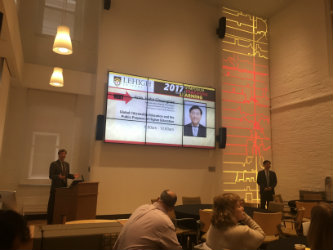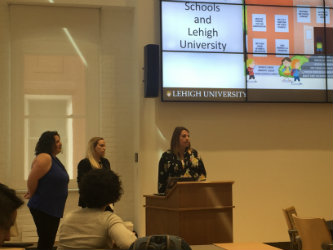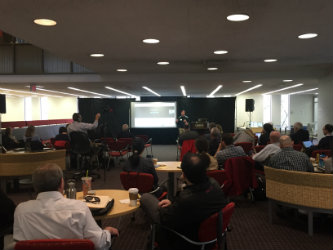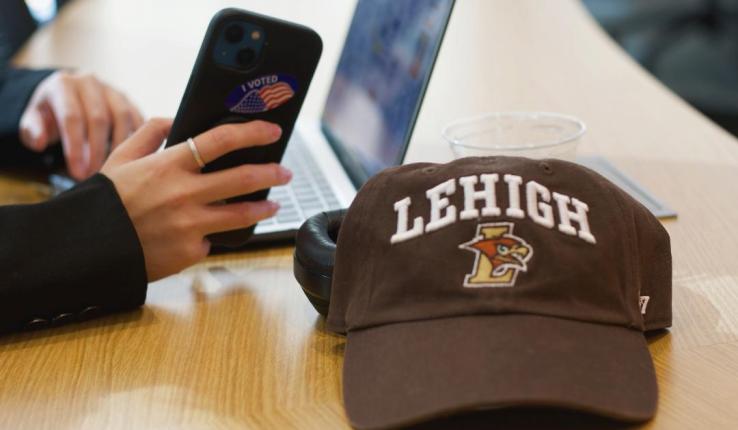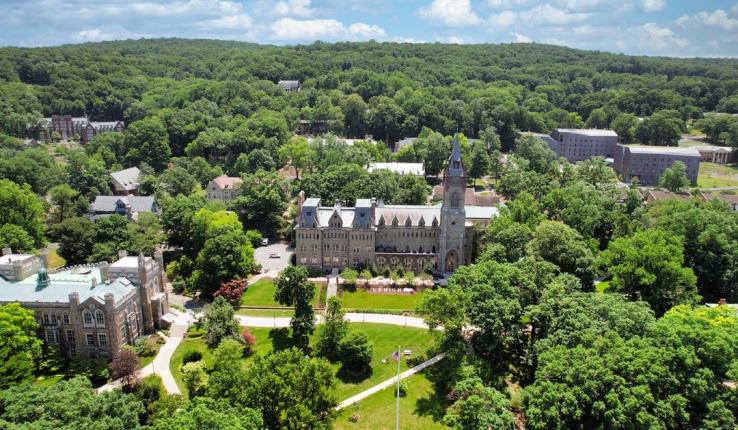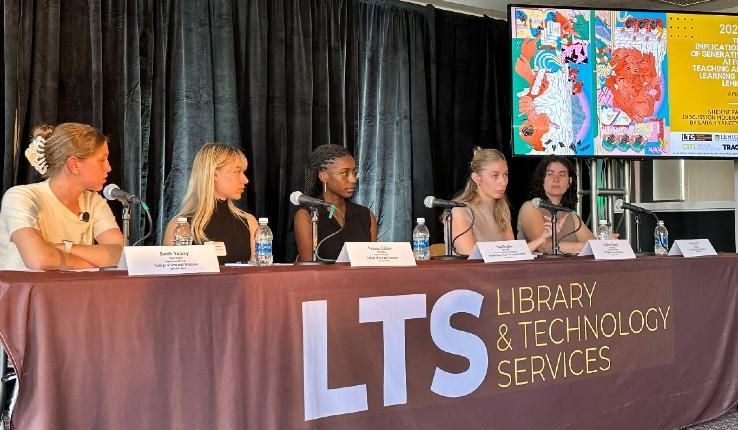Lehigh Celebrates Innovation in Teaching and Learning with Two-Day Symposium
For two days in April, faculty, students, staff members and guests gathered for the 2017 Symposium on Teaching and Learning. This year the Center for Innovation in Teaching and Learning (CITL) and the Center for Community Engagement (CCE) partnered to present the event, which featured a wide range of topics highlighting new, interesting, effective and community-engaged approaches to teaching and learning at Lehigh. The symposium was also presented by the Kern Entrepreneurial Engineering Network, the Mellon Digital Humanities Initiative and the Office of the Vice Provost for Creative Inquiry.
Last year, the Center for Community Engagement hosted its first symposium on community-engaged research, just days after the 2016 Symposium on Teaching and Learning. A collaborative opportunity emerged.
“Some of the topics and participants [of the two symposia] overlapped, especially as some faculty and students were supported by the Mellon Digital Humanities Initiative at Lehigh, which both of our offices support,” explained Greg Reihman, associate vice provost for teaching and learning and director of CITL. “More importantly, both symposia had the same spirit of sharing important course-related student work with the campus, so we partnered with Sarah [Stanlick, professor of practice in sociology and anthropology and director of the CCE) to see if we could combine forces into a single two-day event.”
“We wanted this symposium to be an example of meaningful collaboration, while highlighting the public purpose of higher education through engaged pedagogy, research and partnerships,” said Stanlick.
Over the course of two days, 160 registrants enjoyed 40 presentations on topics ranging from after-school homework clubs and refugee services to immersive virtual reality and active learning.
The symposium’s first day, held in the Roemmele Global Commons in Williams Hall, focused on community-engaged teaching, learning and research. The day kicked off with a presentation by Hahn Choonghee, Deputy Permanent Representative of the Republic of Korea to the United Nations, who discussed “Global Citizenship Education and the Public Purpose for Higher Education.” Choonghee also presented to a group of students one day earlier during a visit sponsored by the Lehigh/U.N. Partnership, the international relations department and the Lehigh Korean Student Association.
Later that day, Jennifer Farrington, vice president and senior director of social investing of the BD Foundation, presented “Corporate Social Responsibility and Impact Investing.”
“[Choonghee and Farrington] gave very different, but complementary, views of being a thoughtful, engaged, global citizen, and I know audience members left inspired,” said Stanlick.
Day One also featured 10- and 12-minute talks on a variety of topics, a poster presentations by Lehigh’s Community Fellows, the screening of a student-produced documentary on the history of Lehigh’s Africana Studies Program, and lunch catered by South Bethlehem restaurants. The 2017 Percy Hughes Award for Scholarship, Humanity, and Social Change was awarded to Brenda Martinez ’15, a graduate student in English and social justice. The 2017 Libraries Student Research Prize for excellence in scholarship and research were awarded to Anastassiya Perevezentsev ’18 and Deanna Kocher ’17.
“It was great to have community partners, students, staff and faculty sharing experiences and highlighting the meaningful, high-quality collaborations we have fostered,” said Stanlick. “From the Global Citizenship students who created a beautiful map and walking tour of the South Side to drive more students beyond the walls of Lehigh to the nationally-recognized tutoring program run by the Community Service Office and so much more, we have a lot to be proud of and continue to develop in partnership with the community. Community is in our DNA and an institutional priority. Having events like this remind us of the great things we can do together.”
‘Profound learning, insight and transformation’
Day Two, held in the Fairchild-Martindale Library, highlighted innovative approaches to teaching and learning. Presentations focused on engaging and guiding students, creative inquiry, and learning through visualization and digital media. The day wrapped up with a presentation by Matthew Frye Jacobson, professor of American studies, history and African American studies at Yale University, on “Teaching with the ‘Historian’s Eye’ (Using a Public Humanities Photo/Web Project in the Classroom).”
"With 40 different presentations, we were able to share a variety of pedagogical practices being used by a broad range of disciplines. This year the presentations clustered together into themes especially well,” said Reihman. “I think this thematic clustering happened in large part because of faculty experimentation with new approaches in focal areas like community engagement, digital humanities, active- and Entrepreneurial-Mindset Learning, flipped and flexible classrooms, and new forms of multi-media communication."
The most important impact of the Symposium, said Reihman, is “the visibility given to those priceless but often hidden forms of teacher-student interaction that lead to profound learning, insight and transformation. We got to see what's possible and what's working well. People left with a glimpse of the many creative ways our faculty challenge our students and the many brilliant ways our students respond. We invited everyone to leave with a plan to put these engaging pedagogies into practice with their own students. I hope they'll come to next year's Symposium to share their stories."
For more information on the Symposium and to view the recordings of the 2017 presentations, click here.
Posted on:


